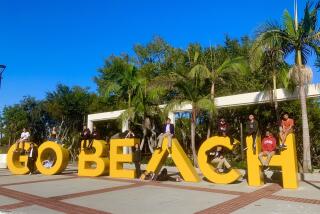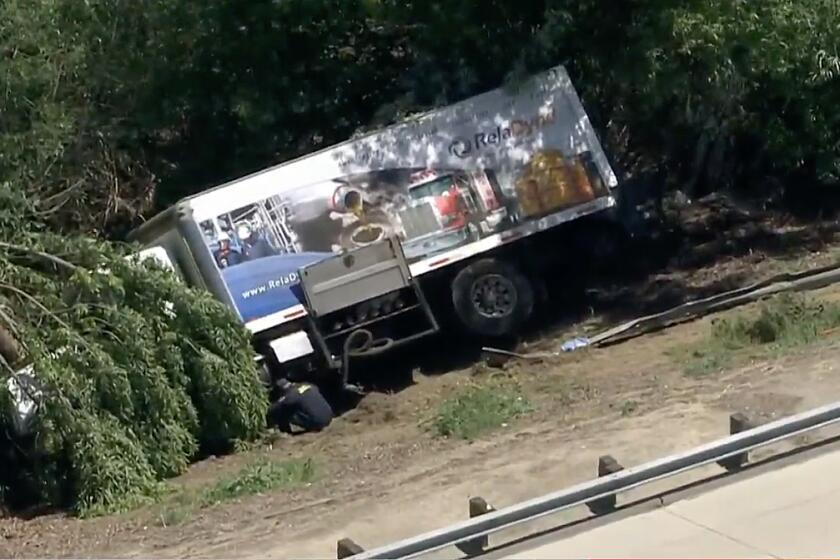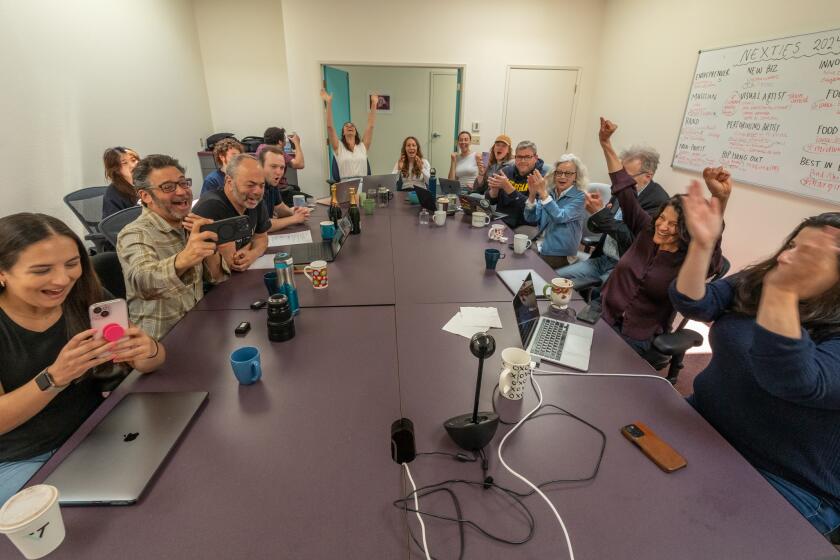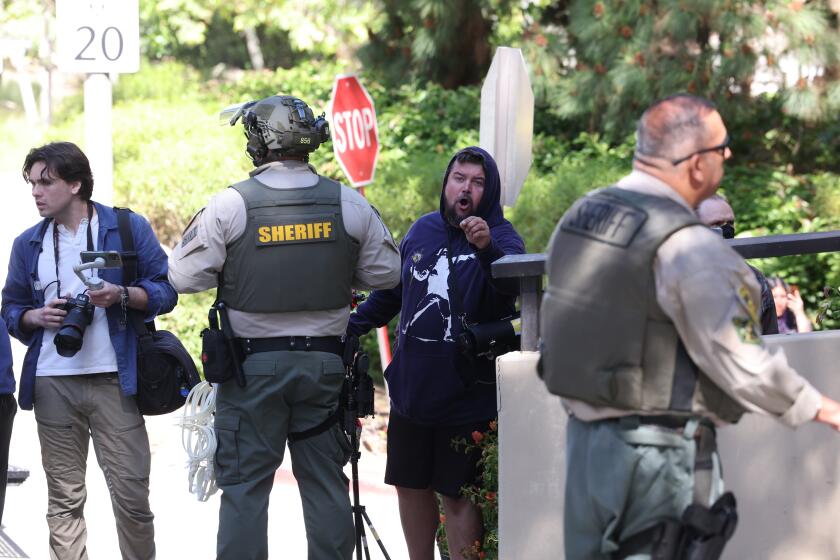Tuition hike, budget gaps top agenda as Cal State trustees discuss priorities for 2017
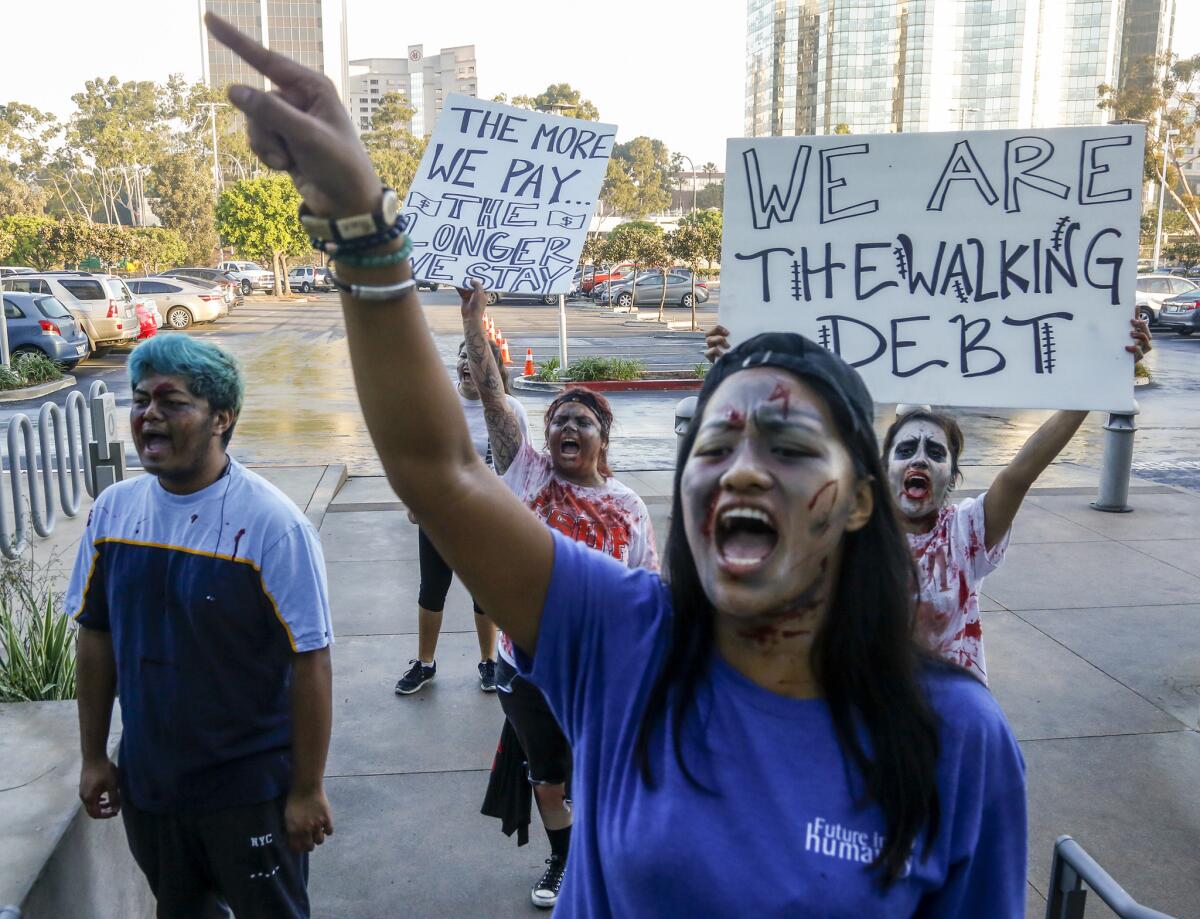
California State University’s trustees on Tuesday will debate raising tuition after a six-year freeze — a controversial idea that has grown more inevitable after the governor’s recent budget proposal.
Gov. Jerry Brown’s budget allocated less than half the additional state funding university officials said was necessary to preserve the quality of the nation’s largest public university system.
Last week, University of California regents, citing similar pressures, voted 16 to 4 to end their six-year freeze on tuition and approve a 2.5%, or $282, increase for the 2017-18 school year.
At Cal State, Timothy P. White has proposed an increase of about 5%, which could amount to as much as $270 for in-state students. Similar increases have been proposed for out-of-state tuition, as well as graduate and teacher credential programs.
The trustees aren’t expected to vote on the proposed hike until March.
If adopted, White said, the tuition increases would generate $77.5 million in crucial net revenue. Cal State has been under pressure to increase enrollment and graduation rates and needs to hire more faculty — all with a smaller share of state dollars than in years past.
State funding covers about half of Cal State’s operating costs, compared with 80% in the 1990s, administrators said. The system relies on its 470,000 students’ tuition and fees to cover the rest.
The state slashed nearly one-third of its support to Cal State during the recession but has steadily restored funding in the last six years. Over that time, Brown pledged annual increases in exchange for a tuition freeze.
At the November trustees meeting, White said that raising tuition was something “none of us want to do,” and that the top priority is to lobby state lawmakers to make it unnecessary by fully funding Cal State’s budget request.
Cal State also needs to pay for faculty salary increases and has a backlog of building upgrades that will cost $2 billion.
Add to that its promise to double its four-year graduation rate, from 19% to 40%, by 2025. To make that happen, it needs to hire more faculty to teach required courses and build up its academic tutoring and bridge programs.
Cal State also lacks the resources it needs to increase student enrollment to make room for all those who want to attend, White has said. Even though its campuses have enrolled 20,000 additional students since the recession, administrators last fall had to turn away more than 30,000 applicants who fulfilled all admissions requirements.
Still, the possibility of a hike has raised the ire of many students and faculty members, who demonstrated in November and continue to protest what they see as the growing inequity in public higher education. Rallies are expected to take place at the trustees meeting on Tuesday and at multiple campuses across the state.
Students are paying the highest Cal State tuition ever; it more than doubled, to $5,472, from 2006 to 2011. Meanwhile, says David Lopez, president of the California State Student Assn., student fees also have gone up, along with the cost of living, especially in areas like Los Angeles, the Bay Area and San Diego.
University officials say that financial aid would cover the additional tuition costs for most students. The more than 60% of Cal State students who have tuition fully covered by grants and waivers would not be affected by the hike. As for those who take out loans, they point out, the average Cal State student debt of $14,388 is half the national average.
Trustees will discuss Brown’s budget proposal, which allocates about $157.2 million in additional funding for the next fiscal year and would raise total state support for the university system to about $3.6 billion.
Cal State had estimated it would need $324.9 million more from the state to cover inflation of operating costs, increases in employee healthcare and other mandatory costs and to make headway on key issues such as graduation rates.
Trustees also probably will discuss their continued support of Deferred Action for Childhood Arrivals, or DACA, an Obama administration executive action that provides a work permit and deportation reprieve to people who were brought to the U.S. as children illegally. They may also talk about Brown’s proposal to phase out the state’s only scholarship program for middle-class students, which he said is necessary given a state deficit that — without action — could hit $1.6 billion by summer.
White will deliver the annual State of the CSU address at the two-day meeting in Long Beach, which begins Tuesday at 8 a.m.
The meeting is open to the public, and a live stream can be viewed here.
Follow @RosannaXia for more education news
ALSO
Inside Celerity schools, teachers saw a clash between scarcity and extravagance
Parents need more help choosing schools in Los Angeles, report says
L.A. school transportation employees fired or pressured to resign for alleged drinking and drug use
More to Read
Start your day right
Sign up for Essential California for news, features and recommendations from the L.A. Times and beyond in your inbox six days a week.
You may occasionally receive promotional content from the Los Angeles Times.
